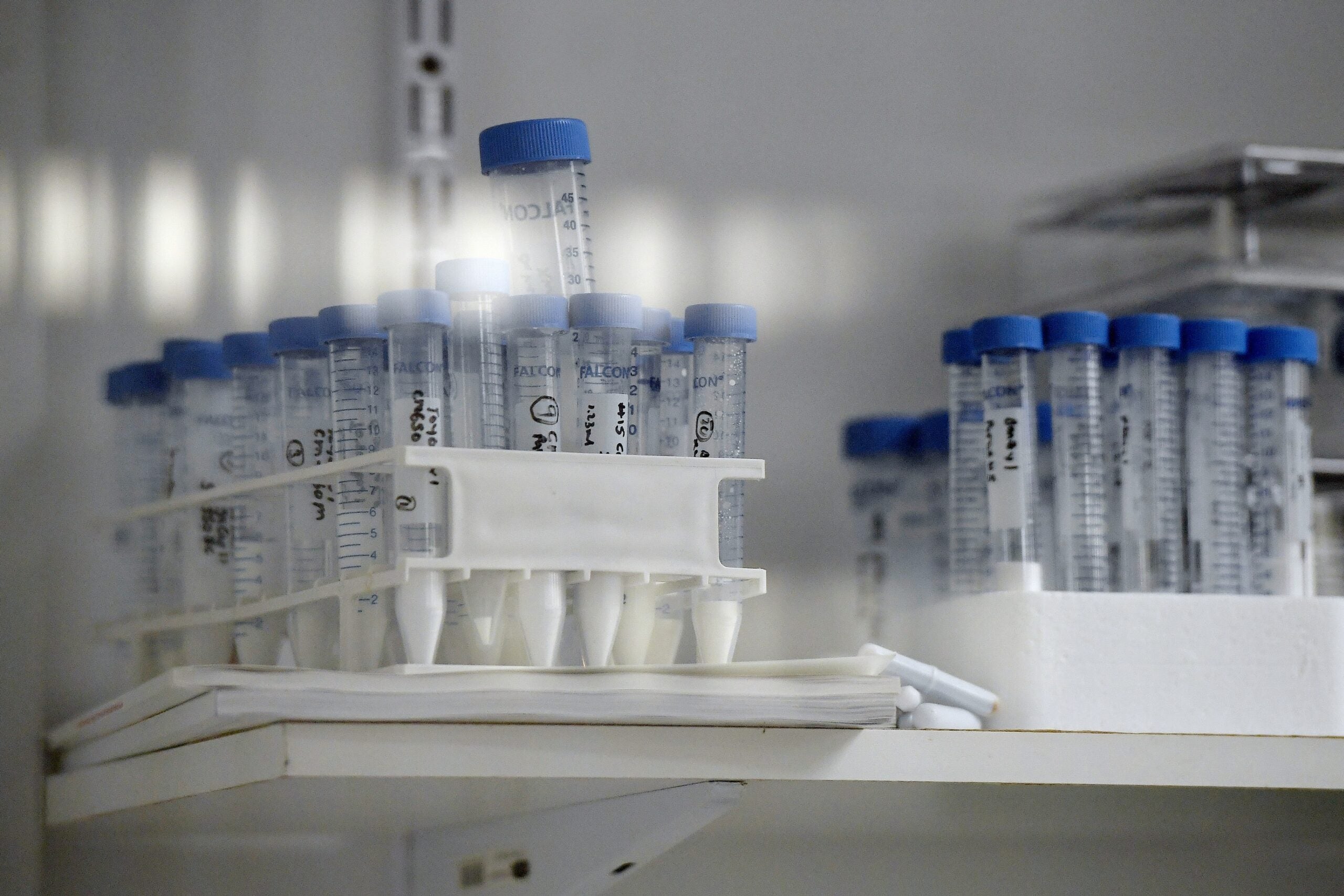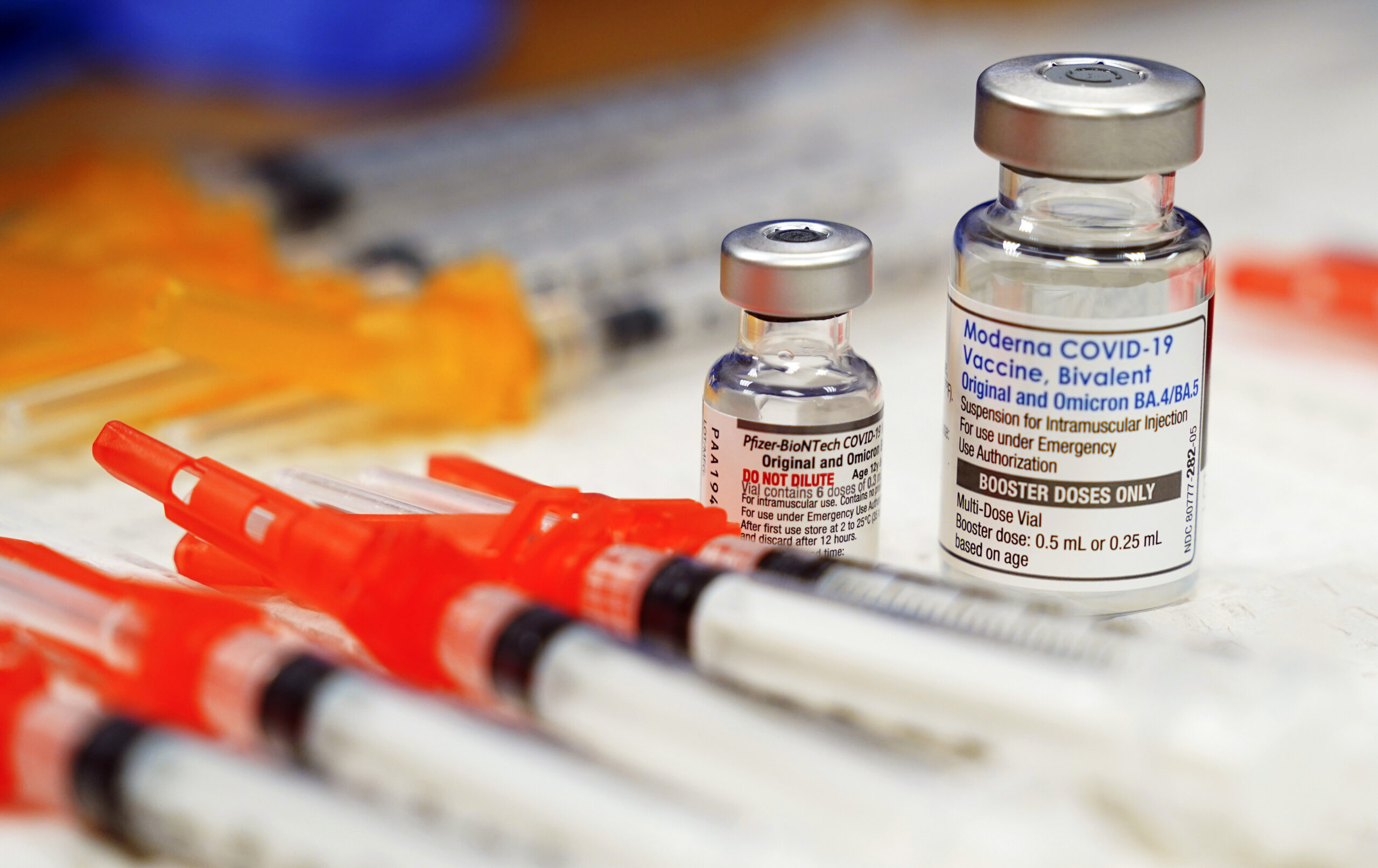The number of confirmed cases of COVID-19 — the disease caused by the new coronavirus — is growing in Wisconsin, and many people are taking steps to prepare for what’s to come. While people are preparing, they are asking important questions like what symptoms should I be watching for? What do I do if I think I have the virus? How does testing work?
WPR’s WHYsconsin has received numerous questions from audience members about COVID-19, and we are working to answer them. WPR’s Hannah Haynes spoke with Dr. Hammad Haider-Shah, chief medical officer at Aurora West Allis Medical Center, to get the answers to some of those questions you have submitted.
This interview has been edited for brevity and clarity.
News with a little more humanity
WPR’s “Wisconsin Today” newsletter keeps you connected to the state you love without feeling overwhelmed. No paywall. No agenda. No corporate filter.
Q: How is COVID-19 different from the flu?
Dr. Hammad Haider-Shah: COVID-19 is different in that one, it is a disease that we haven’t seen, but it is also a disease where the incubation time, or the time from when you were exposed to when you get sick, is a little bit different than it is with the flu. When you get contact from somebody who has the flu, normally within one to three days you develop symptoms and you’re sick. You’re sick for a few days, then the symptoms go away. During the time that you’re symptomatic is the only time that you are able to spread that disease to someone else.
With COVID-19 it works a little bit differently.
The time that you’re exposed to when you get sick can be anywhere from two days to 14 days. And unfortunately, even during that time that you’re not sick you may still be spreading the disease. And the symptoms are not quite the same. They’re not quite as severe as flu (symptoms) can be.
And so because of that the response is a little bit different. And on top of the fact, the flu is definitely much more seasonal. It comes and goes during the season. As well as the fact that many people have immunity to the flu, whether through natural immunity or through vaccines which we don’t have with COVID-19.
Q: How long does COVID-19 take to run its course?
HS: Once you’re exposed, it can be up to 14 days before you develop symptoms. Once you develop symptoms, for most people, you’re only sick for a few days and then you’re starting to feel better. And then once you start feeling better and you’re not coughing, you’re not having any more fevers. And when I say fevers I mean fevers without taking any sort of medications, at that point you’re also not able to transmit the disease to anybody else.
Q: Once people have gotten sick and recovered, do they have immunity against the illness?
HS: No, we don’t actually know whether you have immunity and how long that immunity is good for. So there’s still a lot of information about the (new) coronavirus that we still don’t know yet.
Q: How does quarantine work in action?
HS: Once you are sick or you need to self-quarantine, definitely stay home and avoid public places, avoid public transportation. Limit the rooms that you use around your house. Make sure you’re cleaning the rooms that you are using with regular disinfectant.
You definitely want to limit contact with pets and animals. We just don’t have enough information about whether COVID-19 transmits to pets and animals. We know certain coronaviruses do.
Q: Who should be self-quarantining?
HS: If you’re otherwise healthy, you don’t need to self-quarantine. The only people that would have to self-quarantine who are not sick is if you’ve definitely been exposed. If you know a person who has tested positive and you’ve spent a significant amount of time with them, then for sure you should be self-quarantining at that point. I would definitely have you speak to your physician first before self-quarantining.
Q: How is your hospital responding?
HS: We are looking at everybody that needs to be in the hospital whether it is staff, patients and visitors. We are looking at eventually limiting the number of visitors to the hospital. Otherwise, we haven’t changed any other processes.
(We haven’t) decreased the number of surgeries. People who are otherwise sick or otherwise need treatment should still continue to come to the hospital.
I would recommend that if you do think you have the coronavirus, not to come to the emergency room, but rather to give your physician a call first and to see if you’re high risk or not based on speaking with your physician.
Q: What does testing entail?
HS: It is the exact same process that we use for the flu.
It’s a swab that is either in your throat or in your nose. And we just take part of that and then send that to the lab. The way it works currently, we will send it to our internal lab, we’ll speak to the state, the state will then run the test results and then run the test on that swab and then once we have the results, we will let you know whether you are positive or negative.
Q: What signs and symptoms should people be looking for?
HS: The signs and symptoms for the new coronavirus are fevers, cough and shortness of breath. If you have those symptoms and you’ve been in contact with somebody who has come back from a high-risk area where COVID-19 is very high or you’ve been in contact with somebody who has tested positive for the coronavirus, then you should be giving your physician a call. Those are the people who definitely need to be screened.
This interview came from audience questions as part of the WHYsconsin project. Submit your questions or concerns about COVID-19 here and we will do our best to answer it.






